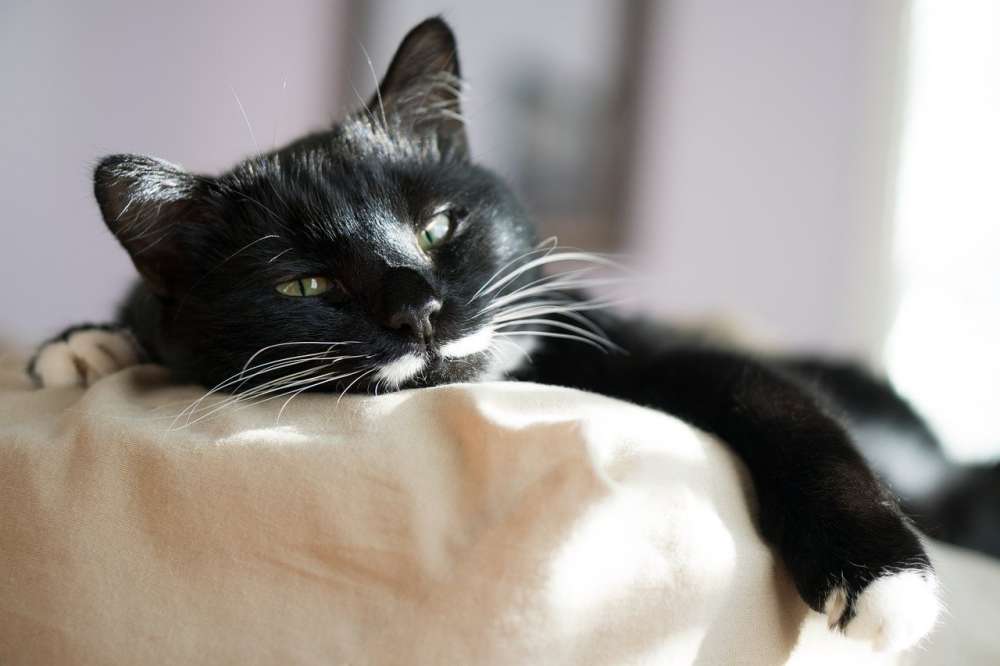
New University of Guelph research suggests pet owners with a suspected case of COVID-19 should with a suspected case of COVID-19 should limit close contact with their pets.
Initial findings, to be presented at the European Congress of Clinical Microbiology & Infectious Diseases (ECCMID) conference, suggest people with COVID-19 frequently pass the illness to their pets, and that cats that sleep on their owners’ beds are at particular risk.
The research has received extensive media coverage, including in BBC News, The Guardian, ITV News, NBC News and the Huffington Post.
Lead author Dr. Dorothee Bienzle, a professor of veterinary pathology at U of G’s Ontario Veterinary College and, and colleague Dr. Scott Weese, infectious disease specialist, set out to determine how susceptible pets were to becoming infected with the coronavirus that caused COVID-19 In humans, and what increased their odds of infections.
They tested 48 cats and 54 dogs from 77 households for antibodies to COVID-19—a sign of past infection, and surveyed the owners about how they interacted with their pets. They then compared those results to cats and dogs tested at animal shelters as well as stray cats.

They found a high proportion of pets in households with people infected with COVID-19 also became infected with the virus, with cats at higher risk than dogs.
A full 67 per cent (32 out of 48) of the cats and 43 per cent (23 out of 54) of the dogs tested positive for antibodies to the coronavirus. That compared to just 9 per cent of dogs and cats from the animal shelter and three per cent of the stray cats.
Cats that spent more than 19 hours per day with their owners, including sleeping on their owner’s bed, seemed to be at a higher risk of infection.
Although most of the dogs developed only mild symptoms, such as a lack of appetite, more than a quarter of the cats developed COVID-like symptoms, such as a runny nose and difficulty breathing, with three developing severe symptoms.
Bienzle told NBC News that people who have COVIV-19 should take steps to protect their pets by wearing a mask and avoiding contact with their cats and dogs as much as possible.
“At this point, we should assume that if we get infected, that our pets are susceptible, too, and they should be treated as any other household member.”
Funding for this research was provided by the U of G COVID-19 Research Development and Catalyst Fund, the Ontario Veterinary College, the Department of Pathobiology and the Ontario Animal Health Network.